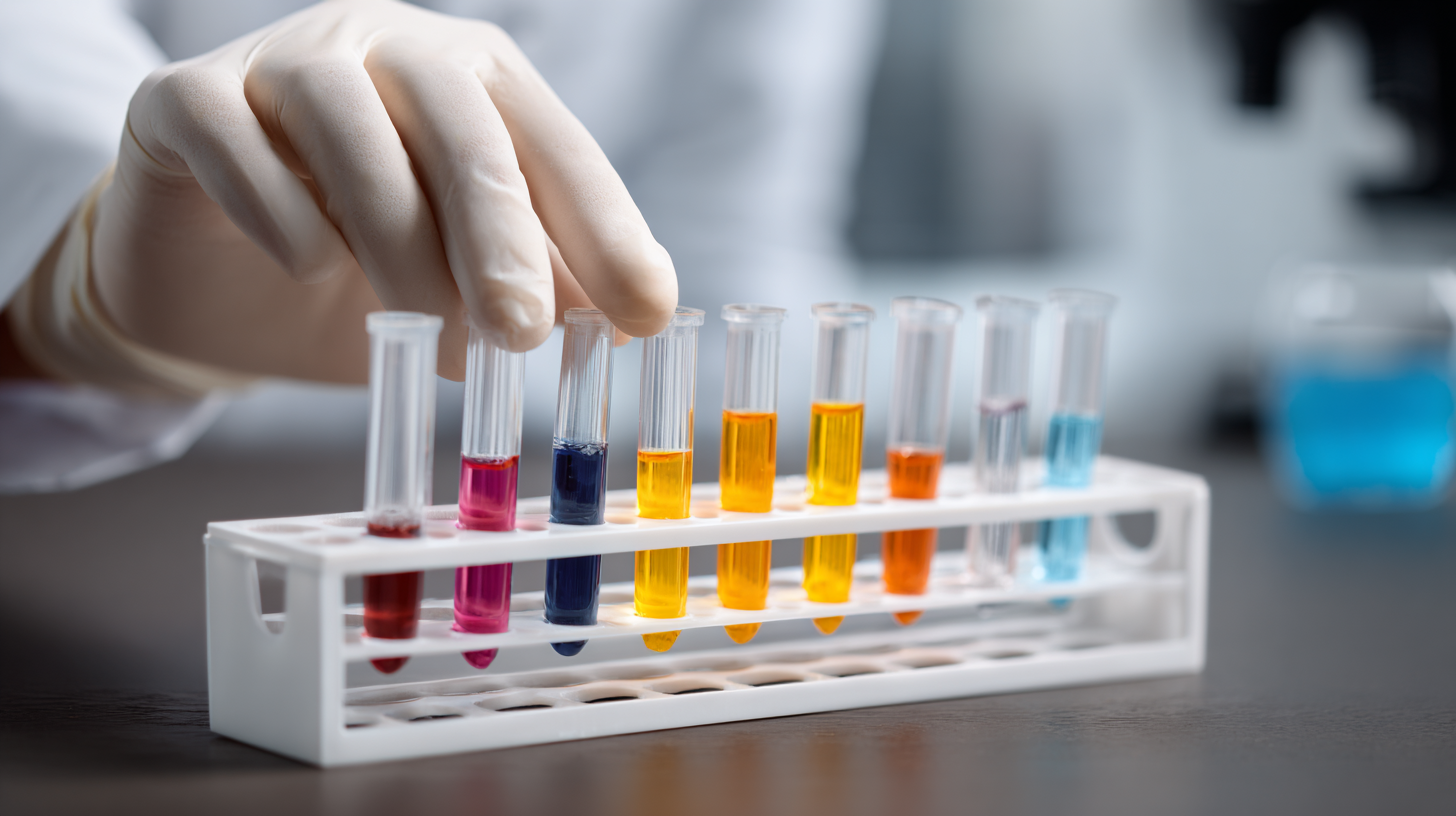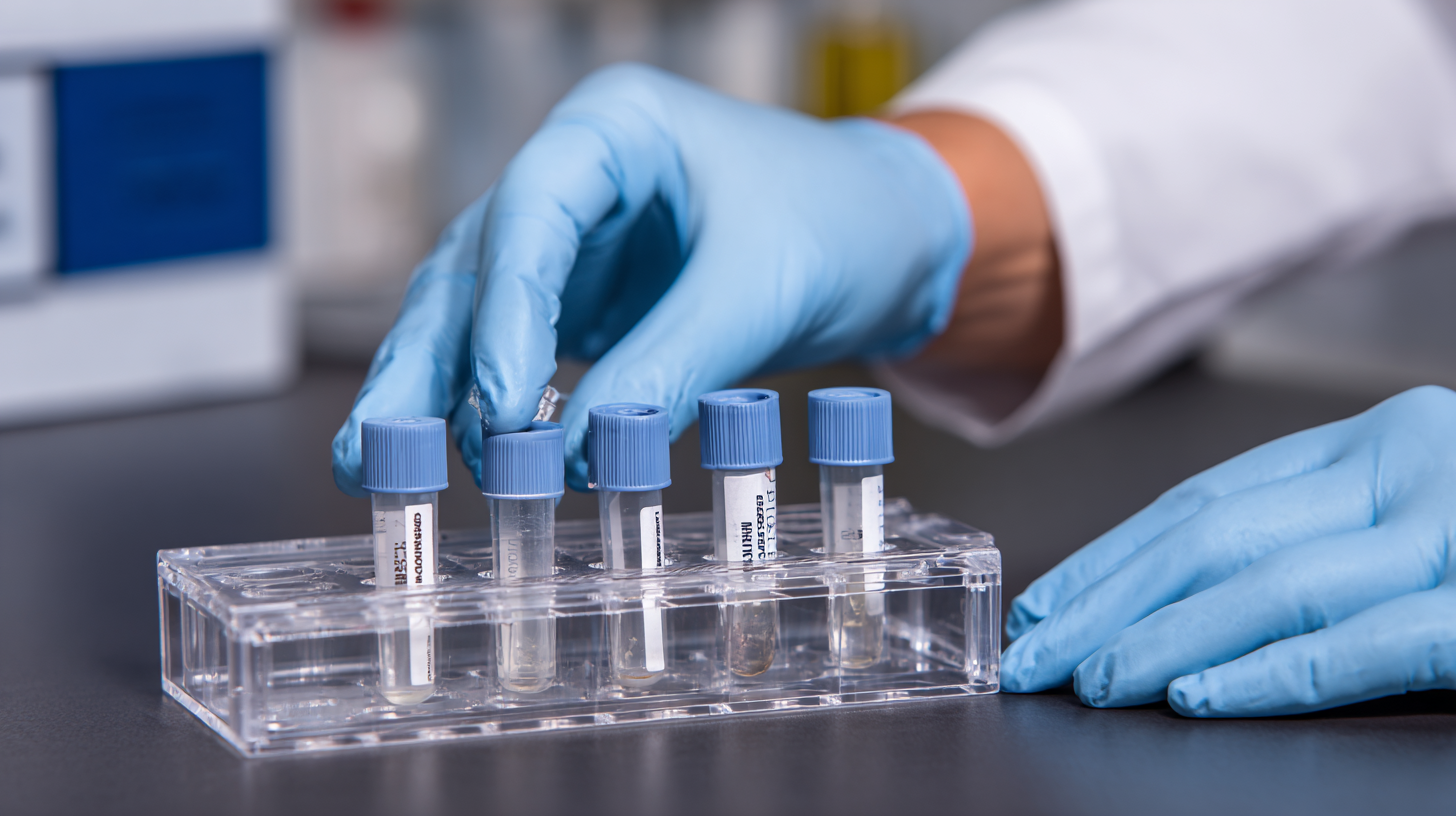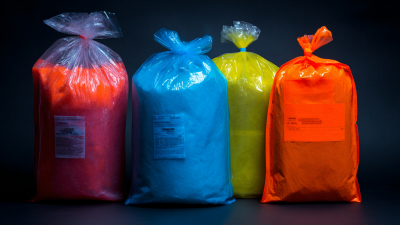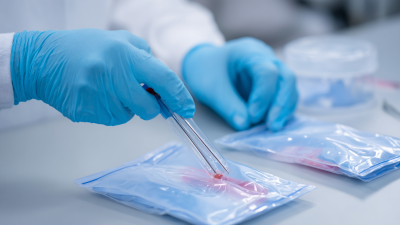 +86 178 5514 5298
+86 178 5514 5298
Leave Your Message
-
 CONTACT NUMBER
CONTACT NUMBER -
 CONTACT NUMBER
CONTACT NUMBER -
 CONTACT NUMBER
CONTACT NUMBER



In the realm of modern diagnostics, the significance of the specimen collection kit cannot be overstated. These kits are pivotal for ensuring that samples are collected, stored, and transported under optimal conditions, significantly reducing the risk of contamination and degradation. According to a report by the Global Diagnostic Test Market, the accuracy of medical testing is closely tied to the quality of specimen collection, with improper handling leading to erroneous results in up to 30% of cases. Moreover, the rise in telehealth services has increased the demand for efficient specimen collection solutions, necessitating a reliable and user-friendly design. As healthcare systems strive to enhance patient outcomes and streamline operations, understanding the importance of these kits becomes crucial for both healthcare providers and patients alike. By adhering to best practices in specimen collection, the medical field can achieve more accurate testing results and, in turn, more effective treatment plans.

When it comes to accurate medical testing, the choice of specimen collection kit is critical. According to a report by the Clinical Lab Improvement Amendments (CLIA), nearly 70% of clinical decisions depend on laboratory test results, highlighting the necessity for proper specimen collection. Selecting the right kit involves understanding the type of tests being conducted, as different tests require specific types of containers, preservatives, and collection methods to ensure sample integrity.
For instance, the American Society for Clinical Laboratory Science (ASCLS) emphasizes that microbiological cultures need sterile swabs and specific media to prevent contamination. Furthermore, using the correct kit can significantly reduce the risk of specimen rejection, which studies indicate can reach up to 30% in some healthcare settings. Potential users should evaluate their specific needs, such as the type of specimen (blood, urine, swabs) and any special handling requirements. By aligning these needs with the specifications of available kits, healthcare providers can enhance the accuracy of test results and improve patient outcomes.

Proper sample collection is crucial for accurate medical testing, and using specimen collection kits can greatly enhance the reliability of the results. When collecting samples, it's essential to follow the instructions provided with the kit meticulously. This typically includes using the correct containers, maintaining sterility, and ensuring that the samples are filled to the designated levels. Additionally, wash your hands properly before and after handling the kits to avoid contamination.
Moreover, timing and storage conditions play a vital role in preserving sample integrity. Some tests may require samples to be collected at specific times or under particular conditions, such as fasting. It's important to label the samples clearly and accurately, detailing the patient's information and the time of collection. Once collected, samples should be stored as directed—some may need refrigeration while others should be kept at room temperature—to prevent degradation. By adhering to these guidelines, healthcare professionals can increase the accuracy of test results, leading to more effective patient care.
This bar chart illustrates the number of medical tests conducted using various specimen collection methods. The data highlights the dominance of blood sample testing compared to other types, emphasizing the critical role of accurate specimen collection in ensuring reliable test results.
The integrity of specimens during transportation is crucial for accurate medical testing. To maintain specimen quality, it is essential to use specially designed specimen collection kits that minimize the risk of contamination and degradation. These kits often include temperature controls, secure packaging, and labels that help ensure proper handling. By adhering to strict protocols during the collection and transportation process, medical professionals can significantly reduce the likelihood of compromising specimen integrity.
In addition to using appropriate kits, training personnel on best practices for specimen handling is imperative. This includes understanding the specific requirements for different types of specimens, such as blood, urine, or tissue samples. Proper sealing, labeling, and swift transportation to laboratories are vital steps that should never be overlooked. Maintaining a controlled environment during transit can also prevent negative impacts caused by temperature fluctuations or exposure to light, ensuring that the specimens arrive in the best possible condition for accurate analysis.
Interpreting test results from collected specimens is a critical step in the diagnostic process. Each specimen type, whether it be blood, saliva, or tissue, has its own set of reference ranges that must be understood in context. Factors such as the patient's age, sex, and overall health can influence these benchmarks, making it essential for healthcare providers to consider the complete clinical picture when evaluating results.
Furthermore, understanding the implications of abnormal findings is crucial. A single outlier may not indicate a serious issue, as variability in test results can be caused by numerous benign factors, such as dietary changes or recent medications. Therefore, healthcare professionals must correlate test outcomes with patient history and other diagnostic information to make informed decisions about next steps. This holistic approach ensures that interpretations lead to effective patient management strategies.
| Specimen Type | Common Tests | Importance of Accurate Collection | Interpretation Considerations |
|---|---|---|---|
| Blood | Complete Blood Count, Blood Chemistry | Essential for diagnosing conditions such as anemia and infections. | Results can vary significantly based on hydration levels. |
| Urine | Urinalysis, Culture Tests | Helps detect urinary tract infections and kidney problems. | Contamination can lead to erroneous results. |
| Swabs | Throat Culture, Nasal Swab | Critical for identifying infections like strep throat or COVID-19. | Timing and technique can affect sensitivity. |
| Stool | Fecal Occult Blood Test, Pathogen Testing | Useful for assessing gastrointestinal health. | Dietary influences may skew results. |
| Saliva | Hormone Testing, Genetic Testing | Provides a non-invasive method to assess hormonal levels. | Timing and method of collection are vital for accuracy. |
Compliance with specimen collection regulations is paramount to ensure the integrity of medical testing. According to a report by the Centers for Disease Control and Prevention (CDC), improper specimen collection can lead to erroneous test results that compromise patient safety and hamper effective treatment pathways. The National Institute of Standards and Technology (NIST) emphasizes that adhering to established guidelines not only safeguards public health but also enhances the reliability of diagnostic outcomes.

To maintain compliance, healthcare providers must implement regular training programs for staff involved in the collection process. The Clinical Laboratory Improvement Amendments (CLIA) outline specific standards that laboratory personnel must meet, underscoring the importance of accurate labeling, proper handling, and timely transportation of specimens. A joint report by the World Health Organization (WHO) and the International Organization for Standardization (ISO) highlights that systematic adherence to these regulations can improve the accuracy of laboratory results by up to 30%. By instituting robust quality control measures and upholding regulatory standards, healthcare organizations can ensure that specimen collection kits serve their crucial role in accurate medical testing.






